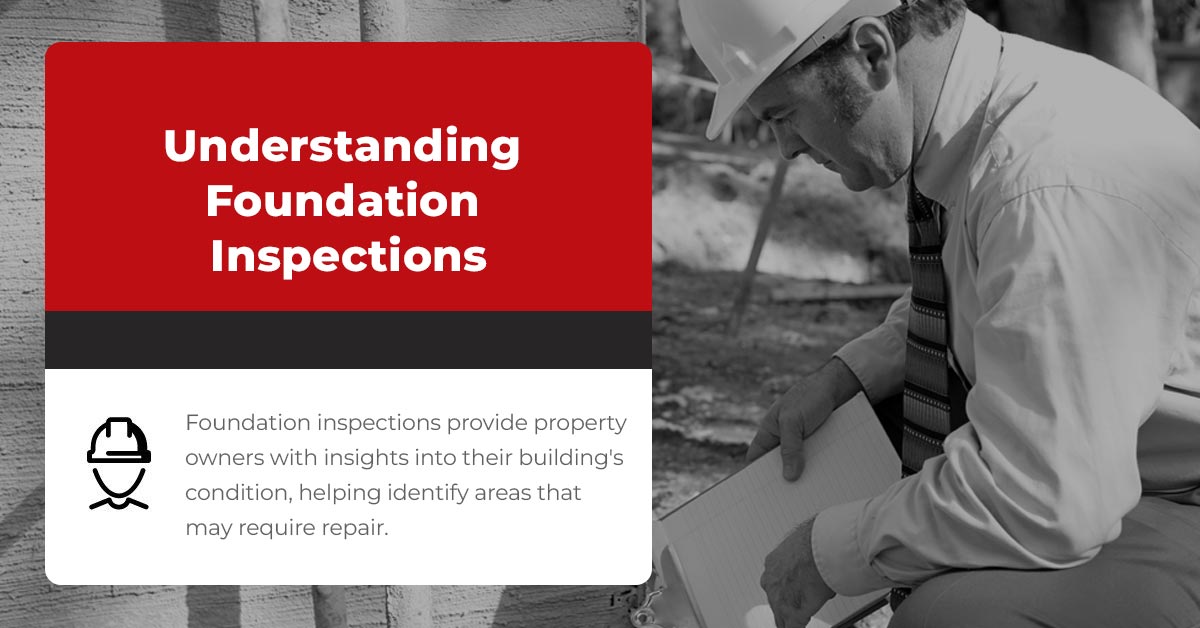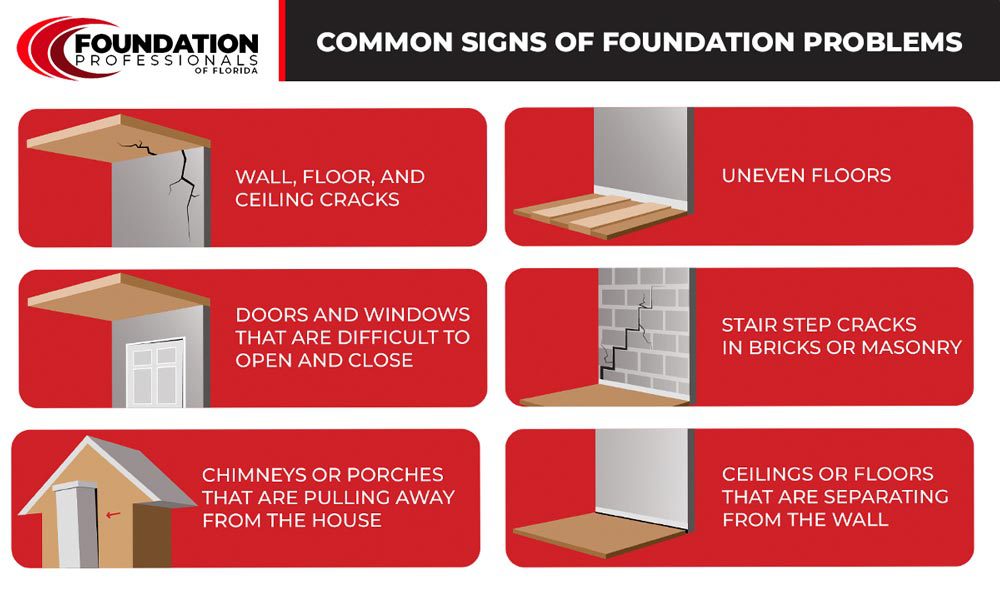Are you a homeowner? Have you noticed problems like cracks in walls, or windows and doors that don’t open and close properly? If so, then it may be time to consider getting a foundation inspection. With proactive maintenance and repairs, foundation issues can be caught before they develop into more serious (and expensive) problems. But first things first– understanding what goes into a foundation inspection! Continue reading to learn how regular inspections can help protect one of your most significant investments: your home.
What Is a Foundation?
In residential construction, a foundation refers to the structural base upon which the entire home is built. The foundation is a critical aspect of the construction process, as it is responsible for supporting the weight of the whole structure while ensuring that the home remains stable and secure.
The foundation serves as the interface between the home and the ground and must be designed to resist soil and water pressures, support the structure’s weight, and prevent settlement or movement from taking place. Several types of foundations are used in residential construction, including slab-on-grade, crawl space, and basement, each of which comes with its advantages and disadvantages depending on the specific needs of the project and the local conditions.
A well-built and designed foundation is essential for the longevity and stability of a home. It can also affect the energy efficiency, indoor air quality, and comfort levels of the house. Working with experienced professionals, such as licensed engineers and contractors, is critical to making sure that the foundation is properly designed, constructed, and inspected according to local building codes and standards.
What Is a Professional Foundation Inspection?
A professional foundation inspection is a thorough assessment of a building’s foundation. During a foundation inspection, a qualified inspector will examine various aspects of the foundation, like its construction quality, the condition of its materials, and any potential defects or damage.
The inspector will also identify any signs of foundation settling, shifting, or structural damage such as cracks, bowing, or unevenness. Furthermore, they will consider any external factors impacting the foundation, like soil composition, local climate conditions, or nearby vegetation or water sources.
An in-depth foundation inspection typically involves both visual and physical examinations, including tests like measuring floor elevations, checking for moisture levels, and performing load-bearing tests. The inspector may also use specialized equipment such as a laser level to accurately assess the foundation’s condition, or recommend further Geological testing like ground penetrating radar.
The results of a foundation inspection can provide property owners with valuable insights into the condition of their buildings and identify any areas that require repair or maintenance. Regular foundation inspections can help prevent significant structural issues, which can have a costly impact on the structural integrity, value, and safety of the building.
When You Might Need a Foundation Inspection
There are various reasons why you might need a foundation inspection, including the following:
You’re Planning to Buy a House
Homebuyers can avoid costly repairs by getting a foundation inspection to identify any underlying conditions affecting the property’s structural integrity. A thorough inspection can help the buyer negotiate for a lower purchase price or give them peace of mind knowing that the property is in good condition. For more information, see our article Buying a House with Foundation Issues.
You Suspect a Problem
It is necessary to conduct a foundation inspection when you notice wall cracks, uneven floors, windows and doors that aren’t opening and closing correctly, or other suspicious indicators.
There Have Been Significant Weather Changes
A foundation inspection becomes an urgent requirement if there have been significant weather changes, such as in the event of a severe drought or flooding.
How Much Does a Foundation Inspection Cost?
The cost of a foundation inspection can vary depending on several factors, such as the size of the property and the extent of inspection required.
Typically, the cost of foundation inspection falls within the range of $300 to $1,000, depending on the property’s specific needs. The inspection can take as little as two hours for smaller properties, and the cost can be as low as $300. However, the inspection can take more time for larger properties, and the cost can range from $500 to $1,000.
In addition to the property size, other factors that can impact the cost of a foundation inspection include the property’s condition, the type of foundation, and the property’s location. For instance, if the property is located in an area with a high risk of soil erosion or natural disasters, the inspection cost may be higher to ensure the foundation is structurally sound.
It is important to note that the cost of a foundation inspection should not be viewed as an expense, but rather an investment into the long-term health and integrity of the property. Regular foundation inspections can help identify any potential issues early on, ultimately saving homeowners thousands of dollars in costly repairs later down the road.
Signs That Your Home Might Have a Foundation Problem
Understanding the signs of a foundation problem can help homeowners identify and address these issues before they grow into more significant problems.
One of the most common signs that a home might have a foundation problem is uneven floors. When a foundation settles or shifts, it can cause floors to become uneven or sloping. This is often accompanied by other issues, such as doors and windows that don’t open or close correctly or cracks in walls, floors, and ceilings.
Stair step cracks in brick or masonry are another potential sign of foundation issues. These cracks are usually diagonal and may appear on the home’s exterior or in the basement. They are usually caused by uneven settling or soil movement and indicate serious foundation problems that need immediate attention.
Chimneys and porches pulling away from the house are also red flags for foundation problems. The problem might be with the house’s foundation or the foundation under the chimney or porch. This issue can also cause cracks to form in adjacent walls and floors.
If you notice walls that aren’t in contact with the ceiling or floor, then your home might have foundation issues. This is often caused by settling or shifting of the foundation and can indicate significant structural problems.
If you notice any of these signs in your home (or anything else that strikes you as suspicious), it’s essential to have a professional evaluate your foundation. Ignoring these issues can lead to further damage and a more expensive repair bill.
If you believe that your home might need a foundation inspection, contact us today to schedule an appointment.


